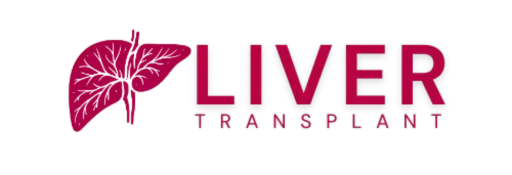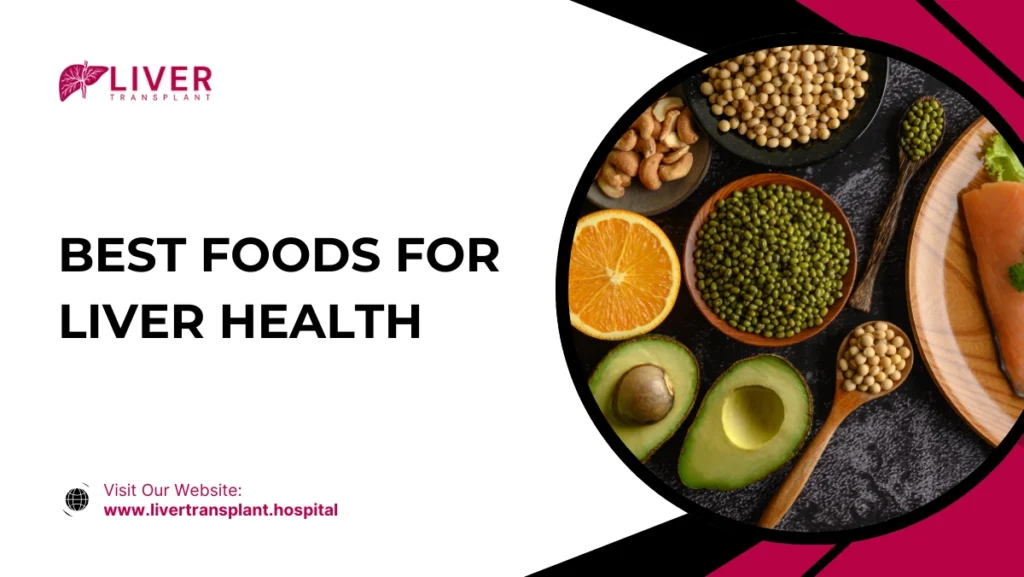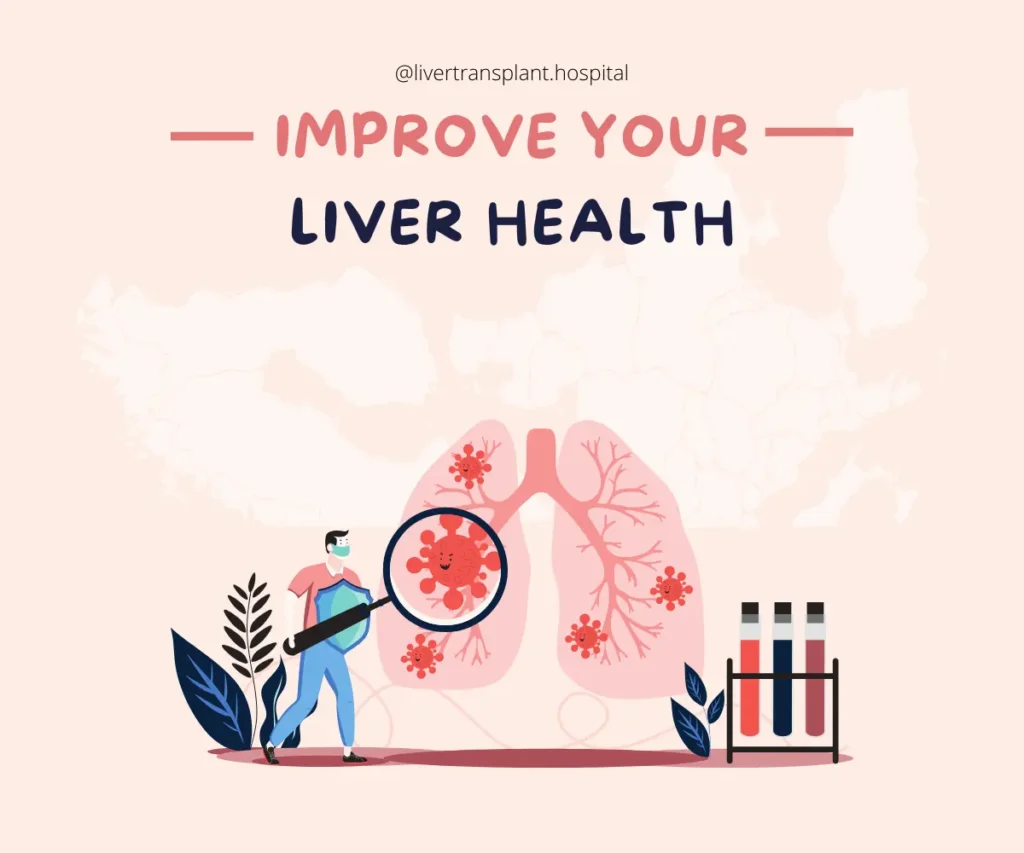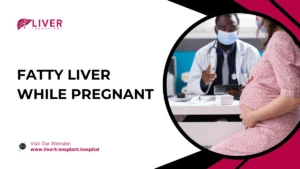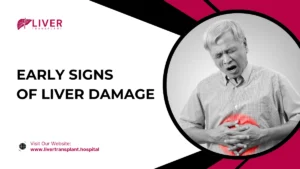The liver is vital for filtering toxins and promoting health. Keeping it healthy can be as simple as adjusting your diet. This blog explores the Best Foods For Liver Health and how they support liver function. Whether you want to improve or maintain liver health, these foods can make a difference.
Overview
Maintaining a healthy liver is essential for overall well-being, as it plays a key role in detoxifying the body, producing bile, and aiding digestion. Incorporating the Best Foods For Liver Healths into your daily diet can enhance liver function and protect against liver diseases. Foods rich in antioxidants, fiber, and healthy fats are particularly beneficial for supporting liver health. By choosing the right foods to eat for liver health, you can improve the liver’s ability to filter toxins and prevent fat buildup, ultimately promoting long-term liver function and reducing the risk of liver-related conditions.
What are the Best Foods to Eat for Your Liver?
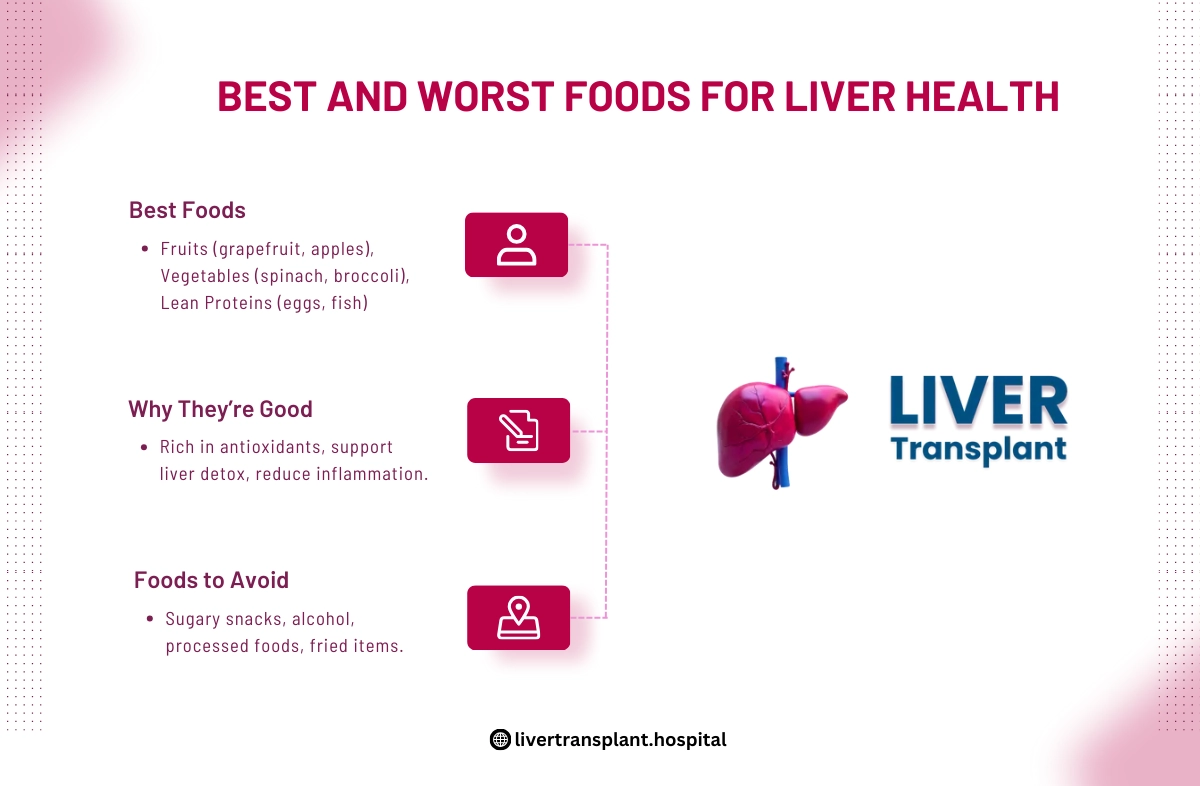
When it comes to maintaining liver health, choosing the right foods is essential. The best foods for liver health include options that are rich in antioxidants, vitamins, and healthy fats. Cruciferous vegetables, berries, nuts, and fatty fish are among the top foods to eat for liver health. These foods help detoxify the liver, reduce inflammation, and support overall function. Including these foods good for liver health in your diet can also help prevent liver diseases, such as fatty liver. Making the right dietary choices is a key step in supporting a healthy liver.
1. Cruciferous Vegetables
Cruciferous vegetables are among the best foods for liver health due to their ability to promote detoxification and protect liver cells. These vegetables, such as broccoli, cauliflower, and Brussels sprouts, contain powerful compounds like glucosinolates that enhance liver enzyme production. This helps the liver break down toxins more effectively, making them excellent foods to eat for liver health.
In addition to their detoxifying properties, cruciferous vegetables are rich in fiber and antioxidants, which help reduce inflammation and oxidative stress. These benefits make them ideal for overall liver function and prevent liver damage.
- Broccoli: Boosts liver enzyme production and aids detoxification.
- Cauliflower: High in fiber and helps cleanse the liver.
- Brussels Sprouts: Rich in antioxidants that protect liver cells.
- Kale: Contains sulfur compounds that help detoxify the liver.
- Cabbage: Promotes bile production, aiding in digestion and liver health.
2. Berries
Berries, such as blueberries, cranberries, and strawberries, are rich in antioxidants. These small fruits help reduce liver inflammation and protect against oxidative stress, which can damage liver cells. Regular consumption of berries has been linked to improved liver function and a reduced risk of fatty liver disease, making them among the top foods to eat for liver health.
Here’s how berries support your liver:
- High in antioxidants: Berries contain powerful compounds like anthocyanins, which help protect liver cells from damage.
- Reduces inflammation: They help lower inflammation, a common issue for those with liver problems.
- Improves liver enzymes: Studies show berries can improve enzyme levels, aiding liver function.
- Supports detoxification: These fruits help the liver eliminate toxins more efficiently.
- Fat reduction: Berries can help reduce fat buildup in the liver, making them beneficial foods to help with a fatty liver.
3. Grapes
Grapes, particularly red and purple varieties, are among the best foods for liver health due to their high levels of antioxidants, specifically resveratrol. This powerful compound has been shown to protect the liver from inflammation and oxidative stress, making grapes an excellent choice for those looking to support liver function. Grapes are also beneficial for preventing liver damage and improving overall liver health.
- Rich in antioxidants: Grapes, especially red and purple ones, are loaded with antioxidants that protect liver cells from damage.
- Resveratrol: This compound in grapes helps reduce liver inflammation and oxidative stress.
- Prevents fat buildup: Grapes can lower the risk of fatty liver disease.
- Supports detoxification: Eating grapes aids the liver in its detoxification processes.
- Easy to include in diet: Grapes are a versatile snack, making it simple to add them to your diet for liver health.
Incorporating grapes into your meals can be an easy step towards better liver health.
4. Nuts
Nuts are a powerhouse of nutrients, offering numerous benefits for liver health. Rich in healthy fats, antioxidants, and essential vitamins, nuts are among the best foods for liver health. Regular consumption of nuts, such as walnuts and almonds, helps reduce liver inflammation, supports liver detoxification, and promotes overall well-being. Here’s why nuts are excellent foods to eat for liver health:
- Walnuts: Packed with omega-3 fatty acids, walnuts help reduce inflammation and support liver detoxification, making them ideal foods.
- Almonds: Rich in vitamin E, almonds protect liver cells from oxidative damage and improve liver function, proving to be beneficial foods that support liver function.
- Pistachios: Loaded with healthy fats and antioxidants, pistachios help regulate blood sugar levels, reducing the risk of fatty liver.
- Cashews: A good source of plant-based protein, cashews aid in digestion and are perfect foods to help with a fatty liver.
Including nuts in your diet can significantly boost liver health.
5. Beans
Beans are an excellent addition to your diet when aiming for better liver health. Packed with protein and fiber, they play a vital role in maintaining liver function. Including various types of beans in your meals can help support detoxification processes and reduce fat accumulation in the liver. Here are some benefits of incorporating beans into your diet:
- High in Fiber: Beans are rich in dietary fiber, which aids digestion and helps regulate blood sugar levels, essential for preventing fatty liver disease.
- Protein Source: They provide a plant-based protein option, which is crucial for maintaining healthy liver cells and promoting overall wellness.
- Antioxidants: Many beans, especially kidney beans and black beans, are high in antioxidants, which help combat oxidative stress and reduce liver inflammation.
- Nutrient-Rich: Beans are loaded with vitamins and minerals, such as folate, iron, and magnesium, which support liver health and overall bodily functions.
- Versatile: They can be added to salads, soups, and stews, making it easy to include them in your meals.
Incorporating beans into your diet is a simple yet effective way to enhance liver health.
6. Fatty Fish
Fatty fish, such as salmon, mackerel, and sardines, are excellent for liver health due to their high content of omega-3 fatty acids. These essential fats help reduce inflammation and fat accumulation in the liver, making fatty fish some of the best foods for liver health. Including these fish in your diet can greatly benefit those looking for foods to help with a fatty liver.
- Salmon: Rich in omega-3s, salmon helps lower liver fat and inflammation.
- Mackerel: Contains healthy fats that support liver function and reduce the risk of fatty liver disease.
- Sardines: Packed with nutrients, sardines provide omega-3s that promote liver detoxification.
- Herring: Another great source of omega-3s, herring supports overall liver health.
- Tuna: A lean protein option that contributes to a balanced diet for liver wellness.
Incorporating fatty fish into your meals is a delicious way to enhance your liver’s health and function.
7. Coffee
Coffee is one of the best foods for liver health, offering numerous benefits that contribute to overall liver function. Research has shown that regular coffee consumption can lower the risk of liver diseases, including cirrhosis and liver cancer. The antioxidants found in coffee, such as chlorogenic acid, help reduce inflammation and protect liver cells from damage. Here are some key benefits of including coffee in your diet:
- Reduces Liver Fat: Coffee has been linked to a decrease in fat buildup in the liver, making it a great choice for those looking to combat fatty liver disease.
- Lowers Liver Enzymes: Drinking coffee can lower liver enzyme levels, indicating better liver function and health.
- Provides Antioxidants: The antioxidants in coffee help neutralize free radicals, protecting liver cells from oxidative stress.
- Enhances Detoxification: Coffee promotes the liver’s natural detoxification processes, aiding in the removal of harmful substances.
Incorporating coffee into your daily routine can significantly support your liver’s health and overall well-being.
8. Tea
Tea, particularly green tea, is highly beneficial for liver health due to its rich antioxidant content. These antioxidants, such as catechins, help reduce oxidative stress and improve liver enzyme levels. Regular consumption of tea can aid in detoxification and support overall liver function. Here are some key points about the benefits of tea for liver health:
- Rich in Antioxidants: Green tea contains catechins, which help combat free radicals and reduce liver inflammation.
- Improves Liver Function: Regular tea consumption has been linked to improved liver enzyme levels, indicating better liver health.
- Supports Weight Management: Green tea may assist in weight loss, reducing fat accumulation in the liver and preventing fatty liver disease.
- Hydration: Drinking tea contributes to your daily fluid intake, promoting hydration, which is essential for optimal liver function.
- Detoxification: Tea helps the liver flush out toxins more efficiently, supporting its natural detox processes.
Incorporating tea into your daily routine can be a delicious way to enhance your liver health.
What Makes Food Good for Your Liver?
Foods that are beneficial for your liver are rich in antioxidants, healthy fats, and fiber. Antioxidants help reduce oxidative stress and inflammation, which are crucial for liver health. Foods high in fiber, like fruits and vegetables, support digestion and aid in detoxification processes. Healthy fats, such as those found in fatty fish and nuts, help reduce fat accumulation in the liver. Additionally, foods that are low in refined sugars and unhealthy fats prevent fatty liver disease. Incorporating these foods good for liver health into your diet can significantly enhance liver function and overall well-being.
What Else Can You Do to Keep Your Liver Healthy?
In addition to consuming the Best Foods For Liver Health, there are several lifestyle changes you can adopt to support liver function and overall wellness. Here are some effective strategies:
- Stay Hydrated: Drink plenty of water to help the liver flush out toxins and maintain optimal function.
- Limit Alcohol Consumption: Excessive drinking can damage liver cells, so moderation is key.
- Exercise Regularly: Engage in physical activity to reduce liver fat and improve overall health.
- Avoid Processed Foods: Minimize sugar and unhealthy fats, which can negatively affect liver health.
- Get Regular Check-Ups: Monitor liver health with routine tests to catch potential issues early.
Conclusion
Incorporating the Best Foods For Liver Health into your diet can greatly improve the health and function of your liver. From cruciferous vegetables to fatty fish, these foods provide the nutrients needed to protect and cleanse the liver. Remember, a healthy liver is key to overall wellness, so be mindful of what you eat and take steps to support liver health in every meal.
